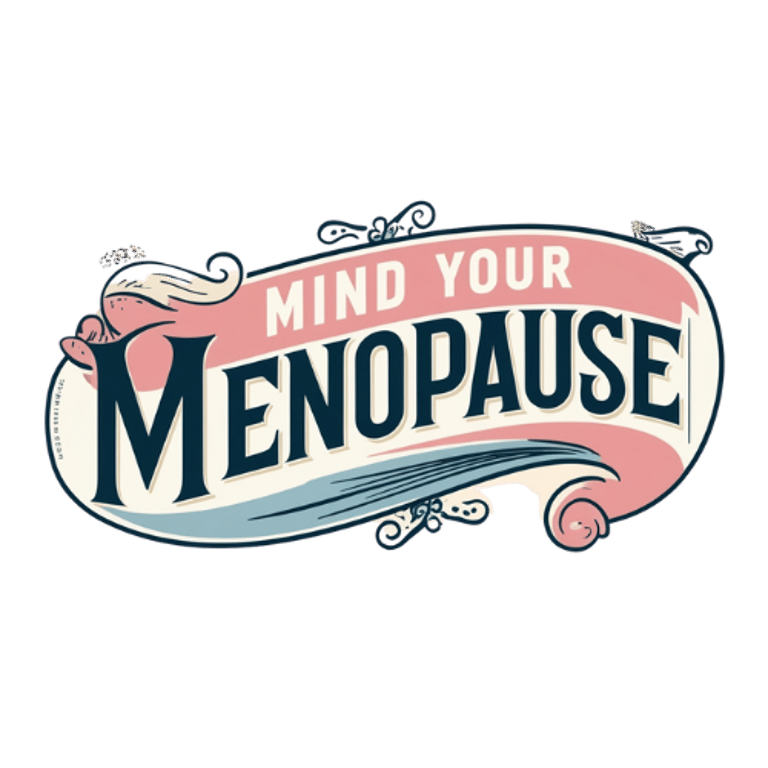Menopausal Symptom Signs That Are Red Flags: What Your Body Is Trying to Tell You
Menopause doesn’t whisper forever. At a certain point, your body starts waving red flags—clear messages that something’s off, out of sync, or overdue for support. This blog unpacks the most important menopausal warning signs that often get dismissed. You’ll learn how to decode these signals, understand what they really mean, and what your body is asking for. These aren’t random symptoms—they’re requests for care.
4/15/20254 min read


Menopause is your body talking. But are you listening?
So much of menopause gets brushed off as “normal.” You’re tired. You’re gaining weight. You’re forgetful. But when these menopausal symptoms signs become persistent, disruptive, or start stacking on top of each other—they’re no longer background noise. They’re red flags.
Your body isn’t failing you. It’s asking for something: more nourishment, more rhythm, less chaos. These signs aren’t meant to scare you. They’re meant to guide you. Let’s walk through 10 menopause red flags and what your body is really trying to say.
1. Your Libido Has Vanished—and It’s Affecting Your Confidence
You’re not just “not in the mood”—you feel disconnected from your body and your desire.
This isn’t about aging or apathy. It’s hormonal, emotional, and physiological.
Estrogen, progesterone, and testosterone all influence libido, lubrication, and arousal. When they drop, your sex drive doesn’t just disappear—it gets buried under discomfort and disconnection.
What your body is telling you:
You need more circulation, more connection, and likely more estrogenic support.
What helps:
Maca root or damiana as adaptogens that gently support libido
Movement that reconnects you with your body (like dance or Pilates)
Omega-3s and blood flow–boosting foods like beets and dark leafy greens
2. Your Blood Pressure Is Climbing Without Explanation
You’ve never had issues before—but suddenly, your blood pressure is rising.
This red flag is often missed because it’s gradual.
Estrogen supports vascular flexibility. When it declines, blood vessels become stiffer, and blood pressure creeps up—especially when paired with poor sleep, stress, and insulin resistance.
What your body is telling you:
It needs more support regulating inflammation and blood flow.
What helps:
Hibiscus tea daily to help lower blood pressure naturally
Potassium-rich foods like sweet potatoes, avocado, and coconut water
Deep breathing exercises to lower sympathetic nervous system activity
3. Your Vision or Eye Health Is Changing Rapidly
Dry eyes, blurred vision, or a sudden need for reading glasses may not just be age.
Estrogen helps maintain fluid balance, collagen, and tear production—all essential to eye health.
What your body is telling you:
Your ocular tissues are drying out and need internal nourishment—not just eye drops.
What helps:
Omega-3 supplements (especially DHA) to support eye moisture
Vitamin A from sweet potatoes, carrots, and leafy greens
Limiting screen time and using blue light filters in the evening
4. You’re Bruising More Easily
You bump into a counter and suddenly have a massive bruise.
Estrogen supports collagen and capillary integrity. Without it, your skin and blood vessels become more fragile.
What your body is telling you:
It needs deeper nutritional support for skin strength and tissue repair.
What helps:
Vitamin C from citrus fruits, kiwi, and bell peppers
Collagen-boosting foods like bone broth (or vegan collagen support like amla)
Zinc and bioflavonoids for capillary strength
5. You’re Having Frequent Urinary Tract Infections or Leaks
You’re dealing with urgency, accidents, or even recurrent UTIs.
This isn’t about hygiene—it’s about hormonal changes that weaken pelvic tissue and shift the vaginal microbiome.
What your body is telling you:
Your estrogen deficiency is affecting urinary and vaginal health.
What helps:
Vaginal probiotics (lactobacillus strains) to restore pH balance
Vitamin D to strengthen pelvic floor function
Pelvic floor therapy or exercises (like Kegels) to support muscle tone
6. Your Cravings for Alcohol, Sugar, or Salty Snacks Are Compulsive
It’s not “just stress eating.” These compulsive cravings are often tied to blood sugar instability and depleted neurotransmitters. Your body is trying to soothe itself with quick dopamine hits.
What your body is telling you:
Your nervous system is overstimulated and your diet may be under-supporting your brain chemistry.
What helps:
Magnesium and chromium to reduce cravings
L-glutamine (natural amino acid) to calm sugar/alcohol cravings
7. Your Feet or Ankles Swell by the End of the Day
This isn’t just water retention—it can be a sign of lymphatic stagnation, circulatory changes, or salt sensitivity emerging post-menopause.
What your body is telling you:
It needs better fluid regulation and movement to support circulation.
What helps:
Daily walks and elevating legs in the evening
Parsley and dandelion greens as natural diuretics
Dry brushing or lymphatic massage
8. Your Body Temperature Fluctuates—But It’s Not Just Hot Flashes
You’re cold when you shouldn’t be. Hot when it’s chilly.
These shifts go beyond the typical hot flash and point to underlying imbalances in thyroid, cortisol, and estrogen regulation.
What your body is telling you:
Your internal thermostat is struggling with hormonal instability.
What helps:
Avoid skipping meals to prevent cortisol spikes
Support your thyroid with selenium (Brazil nuts), iodine (seaweed), and zinc
Wear layers and track when these shifts happen to identify patterns
9. You Feel Less Emotionally Resilient
Things bounce off you less and affect you more.
You're more sensitive to rejection, more likely to spiral after criticism, and slower to recover.
This isn’t weakness—it’s nervous system dysregulation caused by the loss of progesterone and estrogen’s mood-buffering effects.
What your body is telling you:
You need to slow down and create more safety—internally and externally.
What helps:
Adaptogens like holy basil or rhodiola
Journaling to process emotions without judgment
Grounding practices like barefoot walking or vagus nerve stimulation
10. You’ve Stopped Feeling Like “Yourself”
You can’t put your finger on it—but you feel like a stranger in your own skin.
Your drive, clarity, comfort, and confidence feel like they’ve gone missing.
This is perhaps the biggest red flag—and the one that gets missed because it feels vague. But when your sense of identity fades, it’s a clear sign your body needs deep reconnection.
What your body is telling you:
You need to be re-centered in this new version of yourself—with nourishment, presence, and patience.
What helps:
Time in nature to reconnect with what’s real and grounded
Saying no more often and building routines that feel restorative
Therapy, community, or creative outlets to bring your voice back
Final Thoughts: These Menopausal Symptoms Signs Aren’t Warnings—They’re Invitations
They’re not signs that you’re failing. They’re signs that you’re changing—and that your body is asking for care.
This isn’t about going back to who you were. It’s about supporting who you’re becoming.
Listen closely. Respond gently. And remember—your body doesn’t betray you. It speaks to you.
Get your free MEND Gut-Healing Blueprint now! 👉
Mind Your Menopause
Supporting women through menopause with expert guidance.
team@mindyourmenopause.shop
© 2025. All rights reserved.
